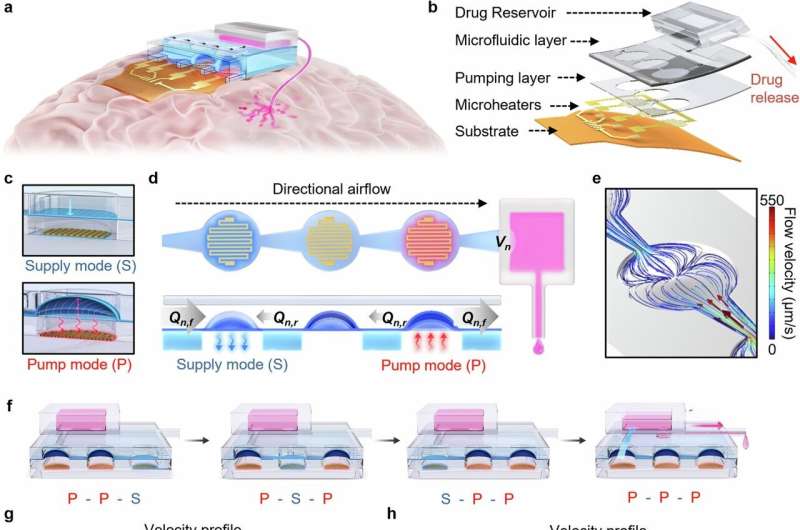The device incorporates a micro-pump and microchannel structure based on flexible materials, thereby enabling precise drug infusion at desired times and locations without needing external equipment. The research team expects that this technology could be applied to the treatment of intractable brain diseases such as Parkinson’s disease and epilepsy.
The research is published in the journal npj Flexible Electronics. The team was led by Professor Kyung-In Jang in the Department of Robotics and Mechatronics Engineering at DGIST.
One of the greatest challenges in treating brain diseases is the blood-brain barrier (BBB), which makes it difficult for drugs to reach the targeted region and poses significant risks of side effects when administered systemically. Existing drug infusion devices also rely on external pumps and tubes, consequently restricting patient mobility and limiting their feasibility for long-term use.

